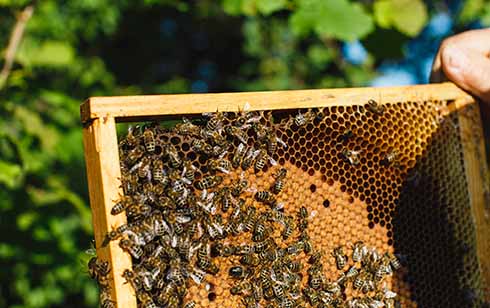 Pope Francis hopes that the week dedicated to Laudato si’ (16-25 May) will rekindle the energy the Encyclical contributed to protecting the environment.
Pope Francis hopes that the week dedicated to Laudato si’ (16-25 May) will rekindle the energy the Encyclical contributed to protecting the environment.
This year the week is followed closely by the annual School Climate Strike (21 May) and World Environment Day (5 June). The timing is happy because all these events emphasise the urgency of care for the environment.
At a time when the number of people affected around the world by coronavirus is still growing rapidly, it is helpful to reflect on the large themes of Pope Francis’ appeal to the world in Laudato si’. They also illuminate the challenges we still face in responding to the virus.
URGENCY AND AUTHORITY
Pope Francis’ letter was significant for the urgency and authority it gave to the campaign to address Global Warming and the pollution of the natural environment. In writing his letter he sought reliable scientific advice, as later did most governments in response to coronavirus. He showed that to do nothing or to make the environment an optional extra to economic policy was not an acceptable option. It threatened the future of the world that we shall hand on to our children.
He also insisted that care for the environment is not only the business of economics or politics. At its heart it is a religious duty. It is part of doing God’s will to make our world one in which people can flourish. For Christians it is not a political business to be left to politicians. Care for the environment has to be part of our personal, our family, our working and our political lives and relationships. The children who take part in the Climate Strike, who are sometimes criticised for neglecting their studies, understand this better than do their critics.
Laudato si’ also emphasised that our relationship with the environment is not one relationship among many. It is bound into all our other relationships. Respect for our family, our local communities, our friends and our nation must be accompanied by respect for our natural environment if we and our world are to flourish. We do not have an environment; we are part of it.
RESPECT FOR ALL
Pope Francis focused particularly on the connection between our relationships with the environment and with people who are poor and who have no political power. When we trash the environment for individual profit we drive people off the land, make the land infertile and make cities into cesspools. Similarly, if we create a grossly unequal world, people will live in polluted land, be victims to illnesses and spread them, strip the earth bare and leave streams dry.
We see this in areas of disadvantage in our own communities. For the marginalised, this is evidenced by lack of open space, less access to services, education and work, increased risk of mental and physical illness.
To care for the environment we need at the same time to ensure that all people in our world are respected, and that our economy serves the human good of all people and particularly the most vulnerable.
After coronavirus the health of all in the world will depend on how we help people in the poorest nations to find protection. If we fail to serve them we shall generate new viruses and mutants that will return to impoverish us. In our environment all is interrelated.